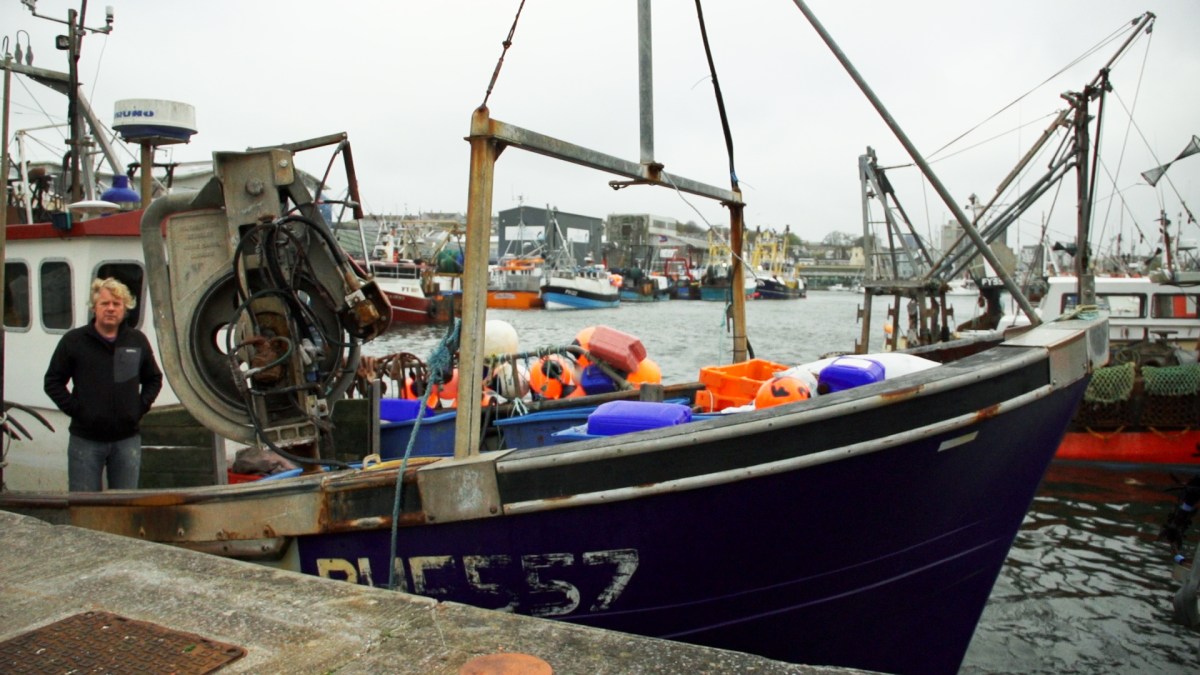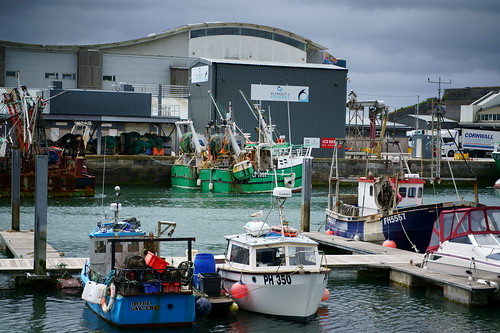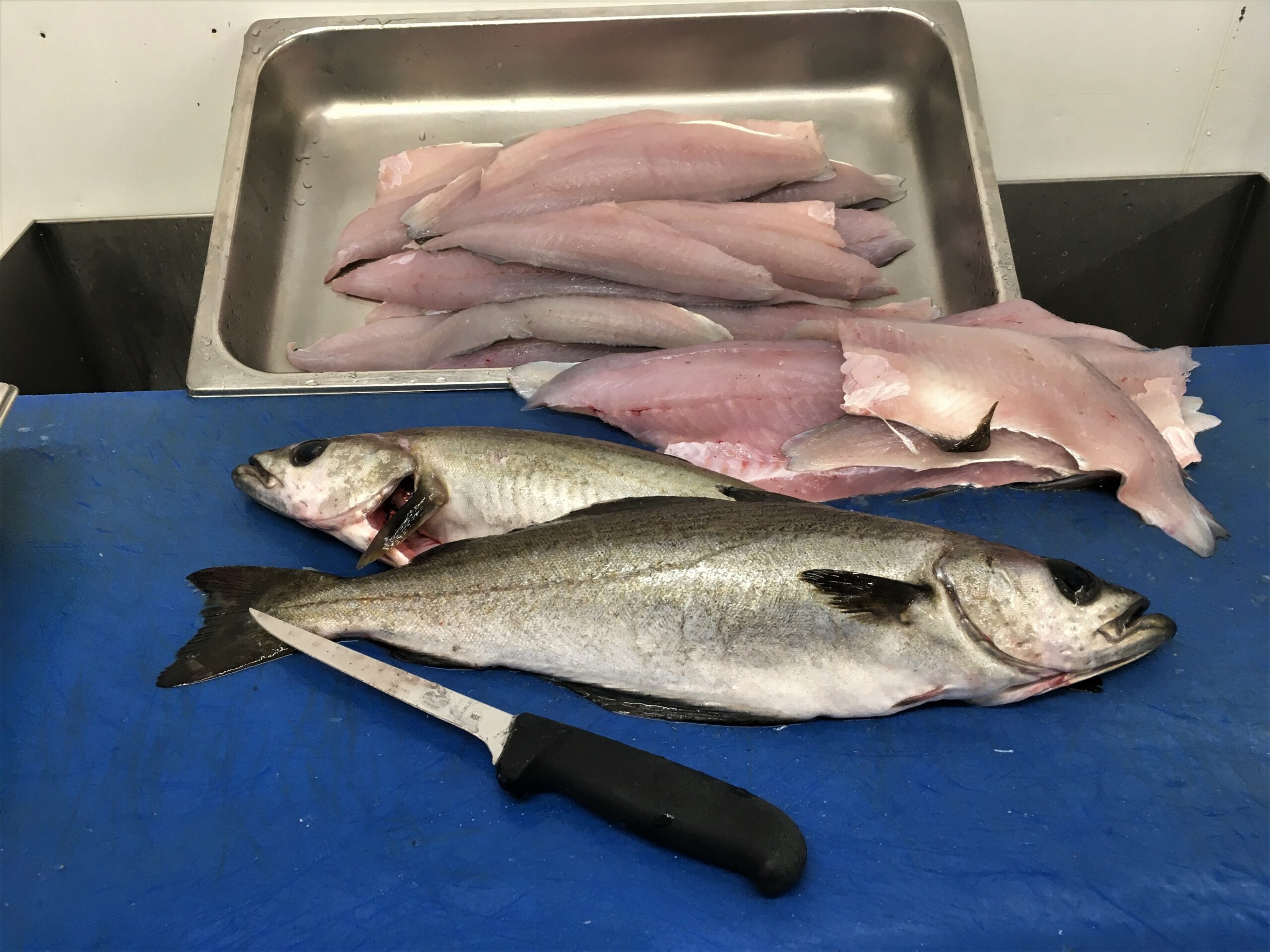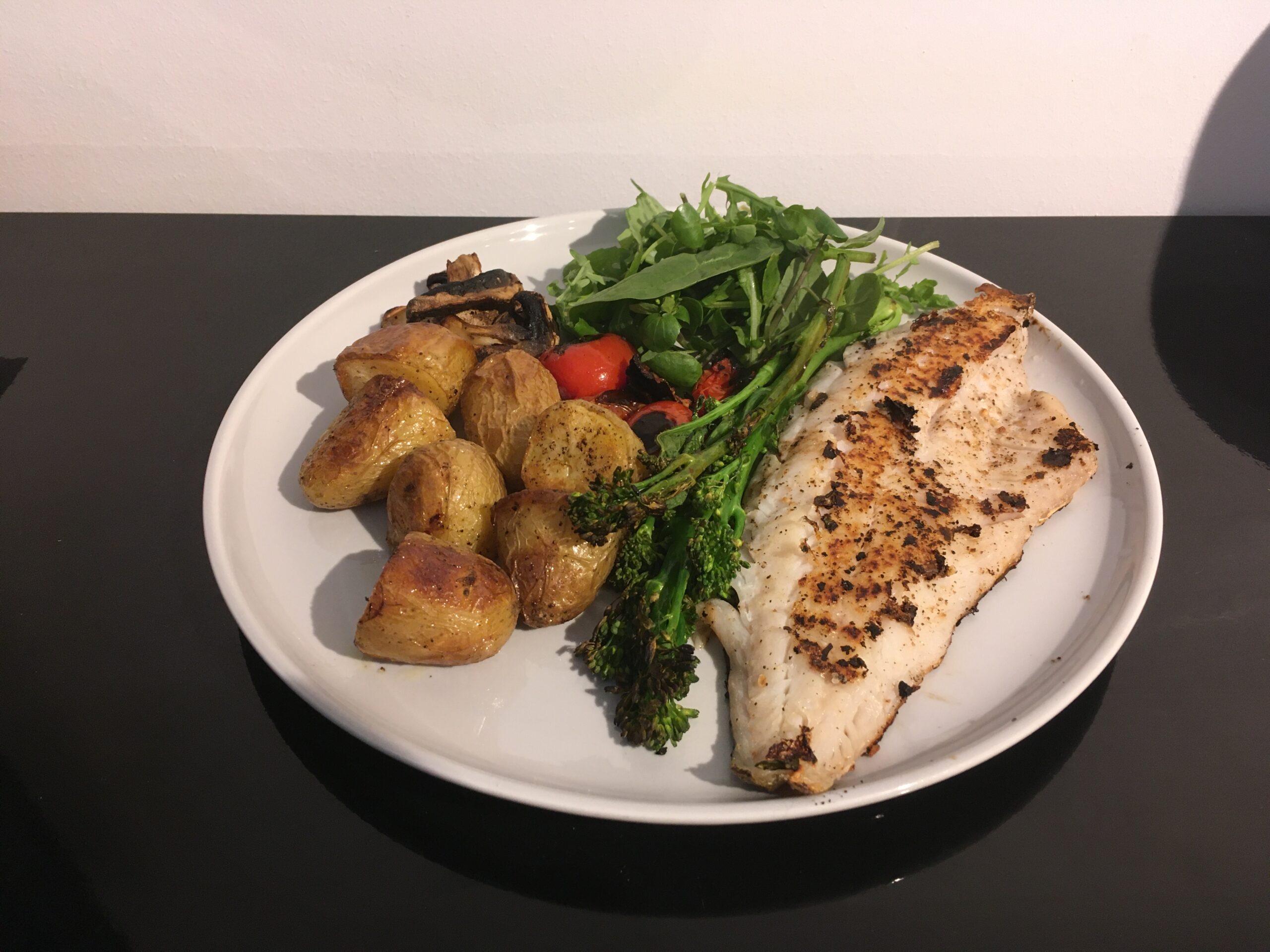Plymouth's Prize Pollack by Honey Bowker
June 24, 2021
Plymouth Fish Quay is a busy market with a variety of different boats landing here throughout the year. Large boats come and go all year round, while the smaller day boats are limited by weather, only able to go out a portion of the year. However, fishing wasn’t always a big industry in Plymouth. Known as a Naval port, Plymouth previously fetched low prices for fish leading to a small fleet with outdated landing facilities and low national demand for Plymouth fish. In 1995 this changed with the creation of Plymouth Trawler Agents, who own and run the fish market with a small fleet of their own boats, continuing to expand and better the fishing community of Plymouth creating the thriving industry we see today.

Small boats in Plymouth are much loved and celebrated on the Quay, with many of the fishers being passionate about conservation and preserving fish stocks around the UK. One of these fishers is Graeme Searle on his boat Emma Louise, known for his great catches of Pollack and Whiting. Using only static nets with large openings, larger than the minimum required mesh size, Graeme prides himself on catching fish which have matured and lived through a number of breeding seasons before being caught, helping maintain sustainable stocks. In my experience fishers from small boats make more of a conscious effort to reduce the damage they do to the environment through using less harmful gear, creating less discards, and using less fuel than larger vessels. As trends in global fish stocks continue to show decline it is important the fishers out there trying to do the right thing receive the credit they deserve and people make an effort to understand where their fish comes from and the environmental impact catching it has had.

Graeme’s fish are landed directly to a small business on the Quay where I work filleting fresh fish that comes in daily. Pollack from Graeme is always some of the highest standard I’ve seen in my career so I take care to do justice to the fish and create the best looking product I can. I start by filleting the fish to remove the meat, being careful to stay as close to the bone as possible, then remove the rib cage and small bones to ensure none are left behind. I prefer my fish cooked simply so I pan fried the fillet with some olive oil, salt, and pepper to season but not overpower the flavour of the fish. Fish from small boats is a joy to process and eat, hearing about how fishers got their boats and they ways they think the industry can be made more sustainable sheds a new light on issues I would have never considered. So the next time you fancy some fish, find a local fishmonger selling fresh fish from small day boats to support local families and sustainable fishing.






